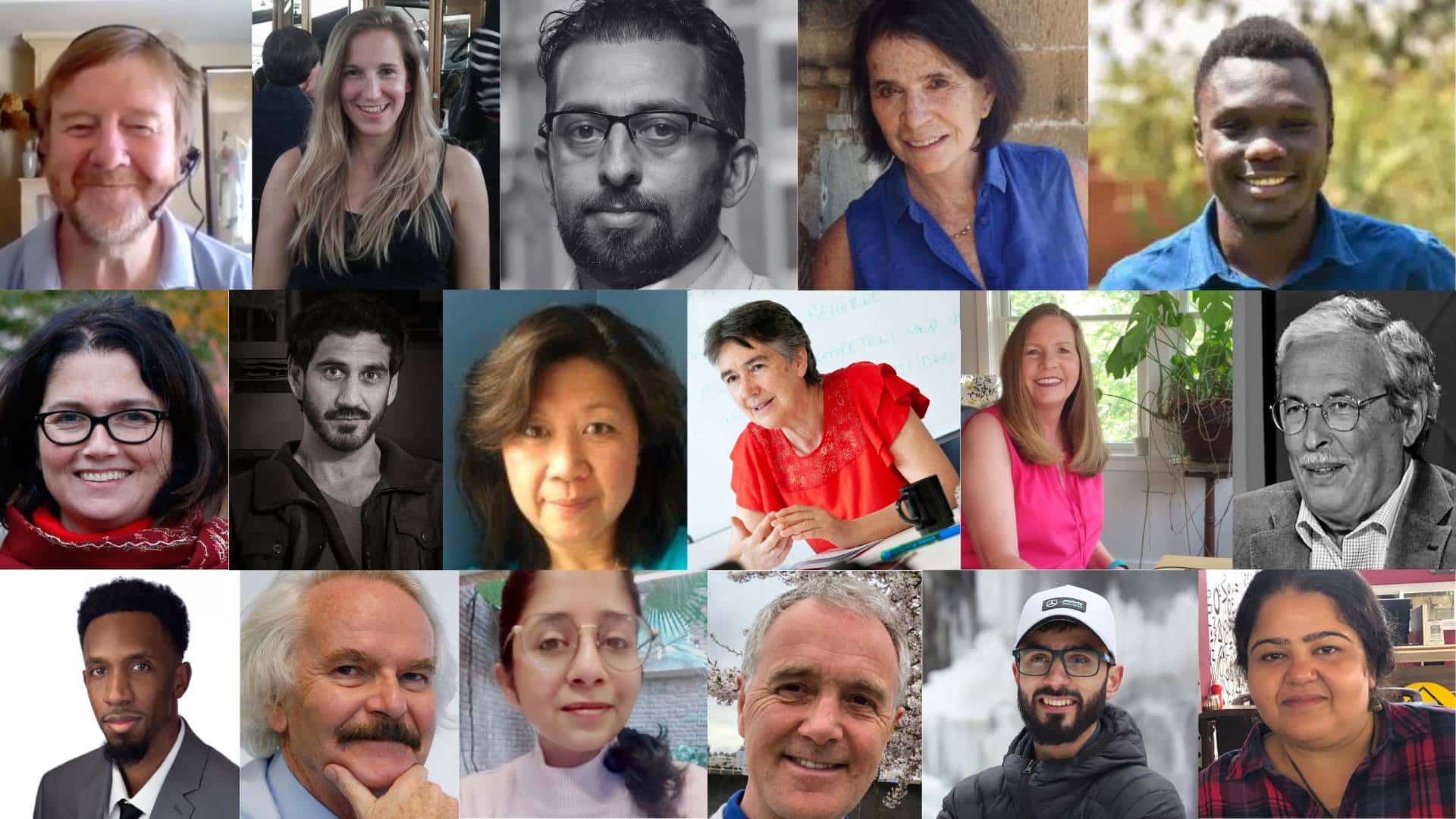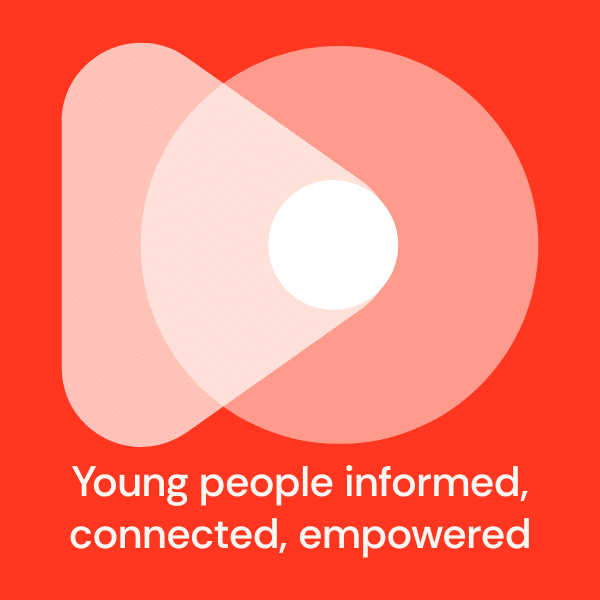Young people struggle to make sense of world events. That’s where our correspondents come in. Experienced journalists and teens learning from each other.

A collage of News Decoder correspondents.
A decade ago, Nelson Graves launched a crowdfunding campaign to jump start a new organization: News-Decoder. The goal was to foster global understanding by building a borderless community of young people keen to extend their horizons and learn about the world.
He had come from a background in objective journalism — he’d been a reporter for the international news service, Reuters for years, reporting from places as far apart as Malaysia, Italy, Japan and the United States.
“It started with a realization during a family holiday two years ago,” he wrote back then. “Our children, in their 20s, were up to speed on international headlines even during vacation thanks to smartphones. But questions kept coming. Why is there fighting in Syria? Flooding in India but drought in the U.S.? Why care about Iran’s new president?”
He called this the “knowledge gap”. Young people knew the headlines but for no fault of their own struggled to understand the meaning of events.
News outfits could deliver global headlines with unprecedented speed. But they weren’t telling young people what they really needed to know: why is this happening? And what can I do about it?
Providing news that makes sense of the world
Graves put out a call to his fellow journalists and charged them with this mission: Can you write news stories that wouldn’t just report what was happening around the world, but explain why things were happening and do so for an audience that has little historical or geographical knowledge and little expertise in government or politics? And can you do this without “dumbing down” the stories?
You see, at News Decoder, we recognize that young people may not have the knowledge base of some of those who have been around a lot longer, but they are no less intelligent and more important, they want to know. The problem is that most news stories bore them or confuse them, because they lack the context needed to show readers why the story is relevant and important to them; why they should care about something happening in a place far from where they live.
For 10 years dozens of correspondents have answered that call reporting on such complicated topics like civil wars in Syria and Sudan, the Russian invasion of Ukraine, nuclear proliferation, threats to biodiversity with climate change and the effects social media has on society and our mental health.
Many of the correspondents who came to us initially were fellow alumni of Reuters, but over the years others have joined their ranks, finding News Decoder after having written for local and national publications in such places as Ecuador, Indonesia, Uganda, Switzerland and Hungary. Writing for News Decoder is different from filing stories for other publications, they tell us.
Tira Shubart has written about melting glaciers in Iceland and the mining of asteroids in space. She sees writing for News Decoder as a privilege.
“This young generation are the people who have inherited the challenges that my generation has created and left unresolved,” she said. “My storytelling about science and politics hopefully shares not only information but provides context to look at the world, both the astonishing bits and the problems. Creating journalism for a young audience is inspiring because they have the power to use the amazing tools of this digital age to reshape the world.”
Showing young people how stories cross borders
Sajad Hameed is one of News Decoder’s newer correspondents and files stories about religion and politics from Kashmir, a territory that has long been disputed between Pakistan and Indai. “As a journalist, I value the platform’s commitment to helping young people understand complex global issues through clear, balanced storytelling,” he said.
He said that having his work published for a youth and international audience pushes him to think more deeply about clarity, context and impact. “News Decoder isn’t just a publication, it’s a learning space that empowers both writers and readers,” Hameed said.
Susanne Courtney, a freelance writer based in Canada, said she was skeptical about the audience when she was first introduced to News Decoder as a fellow in the University of Toronto’s Global Journalism Fellowship. “But as the platform has expanded across continents and into more classrooms, I’ve come to genuinely appreciate the calibre of both the content, the audience and the editing — something every writer and journalist welcomes, and frankly, needs,” she said.
Courtney said that she appreciates the space News Decoder has given her to explore the topics that she thinks matters and for an audience that cares.
“As someone who writes about international development, development finance and global issues more broadly, having a curious, cross-continental readership matters,” Courtney said. “Different audiences bring different lenses — and that adds gravitas for me to the stories I care about telling.”
Feizal Samath, a correspondent in Sri Lanka, came to News Decoder from Reuters, but said that writing for News Decoder has helped him expand his own world view. He spent many years writing for the InterPress Service (IPS), one of the first global news agencies dedicated to development news, but the stories were geared to the wealthy, highly-educated audiences of the Global North.
Decades later, Graves encouraged him to write for News Decoder. “It is opening the eyes of us as veteran journalists who wrote for the rich and are now reaching out to the young and the developing world and their problems,” he said. “It’s a great transformation and learning even at this stage of our journalistic career path.”
At News Decoder, we turn to our correspondents for more than the stories they file. Like everything else about the organization we see our correspondents as an integral part of our core mission of connecting people across borders. Our correspondents have Zoomed into classes across the globe and have served as expert sources and moderators for our cross-border webinars and Decoder Dialogues, in which we gather students from countries for conversations on important topics.
Norma Hilton said she values these opportunities. Like Courtney, Hilton came to News Decoder as a Dalla Lana Journalism fellow and has written articles on media literacy and pop culture.
“I’ve never really thought I’d be on a panel of any kind but being able to talk about my journalism experience and hopefully help younger people be interested in journalism and its power, has been the honour of a lifetime,” she said.
This is day two of News Decoder’s two-week Annual Giving Campaign, with reflections on 10 years of empowering young people to think critically and engage with the world.
As our anniversary year draws to a close, we wrap up the celebrations with a look back at News Decoder’s impact on young people and educators over the last decade — and we couldn’t have done it without you.
Join us in supporting the next generation of thinkers and storytellers.

